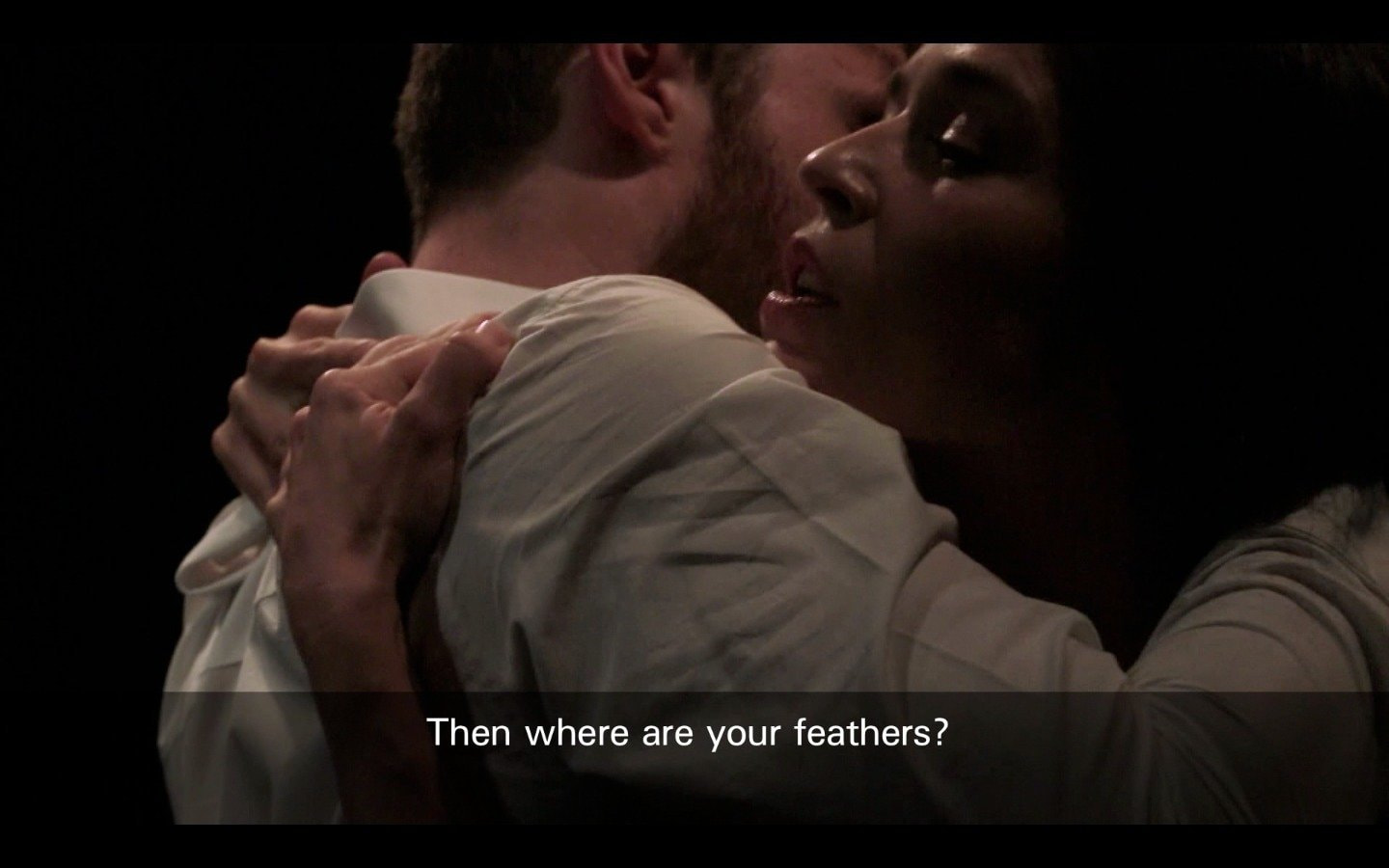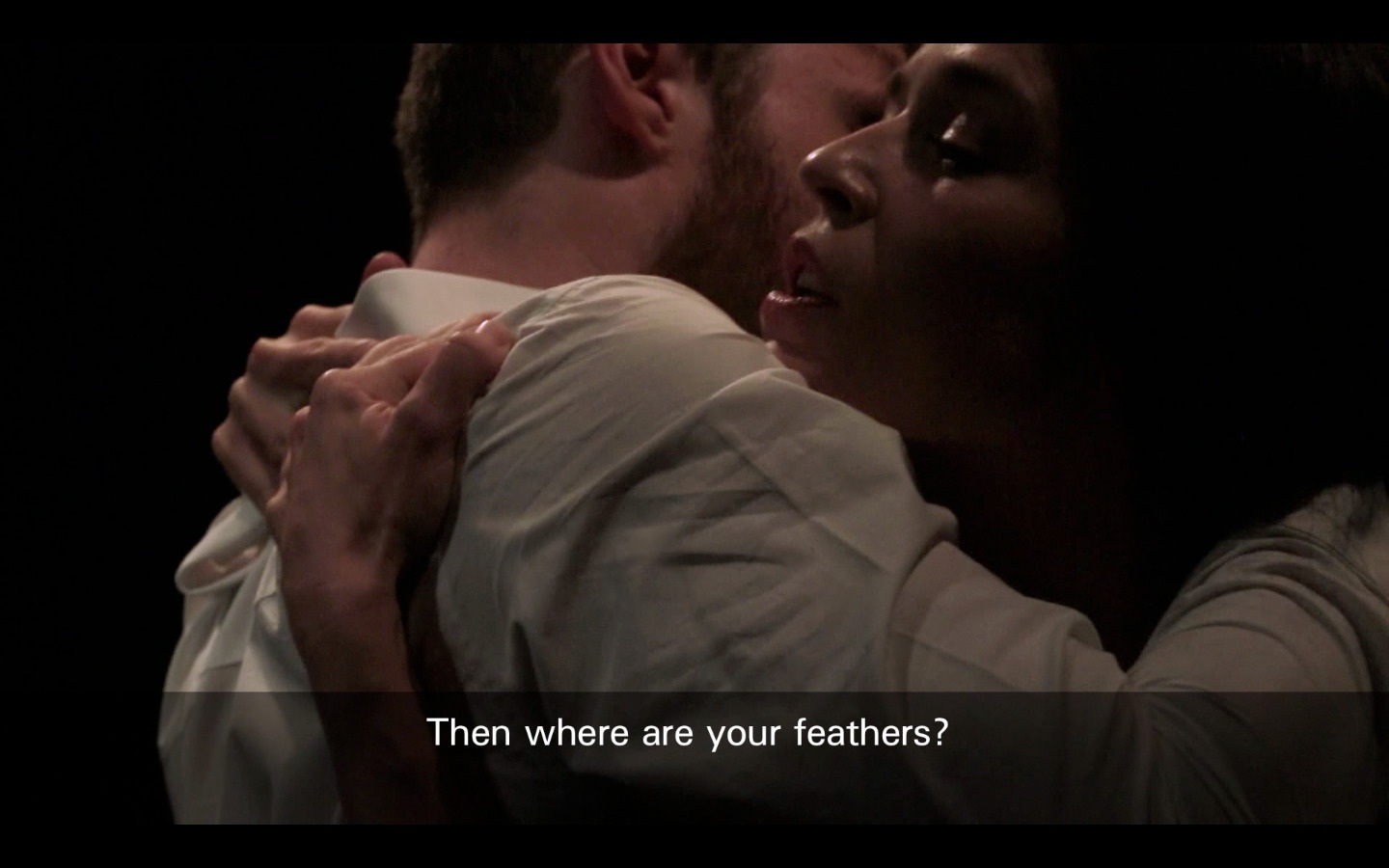18+
Curators Ekaterina Degot and David Riff present films introduced at Monday Begins on Saturday, the First Contemporary Art Triennial Bergen Assembly.
In its opening year, the curators Ekaterina Degot and David Riff shaped the concept of the triennial Bergen Assembly (31 August - 27 October 2013) around the seminal Russian sci-fi novel Monday Begins on Saturday by the Strugatsky brothers. The story of a fictitious magical research institute was reenacted in 11 artistic venues across the Norwegian city. The artworks selected by the curators took as their themes art as research, society during the time of neoliberal transformations, the disappearing future, anti-formalism, dialectics in art, and other subjects. The triennial featured a variety of works specifically commissioned for the exhibition, many of them videos. A selection of these films is presented to the Moscow public during Fall 2013.
October 25, 2013
7:30 pm
Keti Chukhrov. Love Machines. 2013. HD video. 42 min. English subtitles.
Love Machines by Keti Chukhrov is a dramatic poem that questions today's shift to a post-humanist philosophy, with its dismissal of the notions of love, mercy, pity, and collective sensitivity as components of an outdated human culture. The film was adapted from Chukhrov's original play Love Machines and features staged action in the style of a teleplay.
Cast: Dina Gatina, Arseniy Zhilyaev, Vera Kuznetsova, Maria Chirkova, Andrey Andriyanov, Elena Dmitrieva, Anastasia Morgun, Dmitry Ivanov, Nadezhda Ershova, Leonid Volkov, Natalia Zaytseva, Kirill Manakov, Irina Kostenko, and Alexander Khityov.
Producer: Olga Shirokostup
Camera: Sergey Shilovs
Editor: Victor Alimpiev
The post-screening discussion will feature the film's creators Keti Chukhrov and Olga Shirokostup; curators of the First Contemporary Art Triennial Bergen Assembly Ekaterina Degot and David Riff; and prominent Moscow-based speakers, including Antonio Geusa, Vitaly Patsyukov, Ilya Budraitskis, and others.
Keti Chukhrov is an art theorist, philosopher, and poet. She currently teaches at Russian State University for the Humanities.
Ekaterina Degot is an art historian, writer, and curator based in Moscow. She teaches at the Rodchenko Moscow School of Photography and Multimedia.
David Riff is a writer, translator, artist, and curator. He teaches at the Rodchenko Moscow School of Photography and Multimedia.
Olga Shirokostup is an artist and art manager.
Admission is free
The Fall 2013 screenings include:
1) A lecture by Ekaterina Degot and David Riff on the Bergen Assembly, followed by screenings of films:
Roee Rosen, Maxim Komar-Myshkin and The Buried Alive Group: A Manifesto and 6 Videos (2004-2010), 2013.
Josef Dabernig. Hypercrisis, 2011, 17 min.
Jumana Manna, Sille Storihle, The Goodness Regime, 2013, 20 min. In English; no subtitles.
2) Wong Men Hoi, The East is Red, 2013, 120 min. In English; no subtitles.
The East Is Red, a feature film by Chinese-born Wong Men Hoi, offers two parallel stories. The first depicts a young Chinese man searching for his father, who had been convicted during the time of the Cultural Revolution for his ties with the Soviet Union. The second collects reminiscences from members of the now-defunct Norwegian Communist party, who used to be committed Maoists when they were young. Norway, China, and Russia become parts of one entangled whole.
3) Jan Peter Hammer, Tilikum, 2013, 50 min. In English; no subtitles.
Jan Peter Hammer's film tells the story of a bull orca named Tilikum who brutally killed his trainer after a performance at Sea World in Orlando, Florida. As it was revealed later, the man was Tilikum's third human victim. While researching the incident, Hammer discovered a bizarre web of connections between the earliest "oceanic" leisure centers and Cold War military research, ranging from the grisly development of sensory deprivation techniques, fatal early experiments on dolphins, LSD-fuelled scientists, crazy dreams of interspecies communication, and what all this has to do with the space race.
4) Anton Vidokle, Pelin Tan, 2084 (Episodes I and III), 2013. 22 min. In English; no subtitles.
Anton Vidokle and Pelin Tan's project 2084 is an ongoing exploration of the "history of the future". Episode I shows a number of art professionals discussing their respective difficulties and apprehensions in considering the future. Episode III, which was filmed in Cappadocia, Turkey, revises the ideas of "Russian Cosmism" and features a donkey talking to a flower in a cave.
5) Chto Delat, A Border Musical, 2013, 48 min.
Told in the form of a Brechtian songspiel, A Border Musical is a scathing, hilarious, and haunting story about the cross-border marriage of a Russian woman from the impoverished mining town of Nikel and a Norwegian man from Finnmark.
Francis Hunger, Deep Love Algorithm, 2013, 30 min. In English; no subtitles.
In Deep Love Algorithm, Francis Hunger tells a story of unrequited love. Journalist Jan meets Margret, who looks about 27. But she's already over 80 and might be a cyborg.
6) Dimitri Venkov (in collaboration with Antonina Baever), Like the Sun, 2013, 58 min.
In Like the Sun, Dimitri Venkov follows three researchers on their quest for human happiness. The film's action takes place at three locations - the utopian community of Auroville in India; the famous Biosphere 2, an experimental research space in the desert near Tucson, Arizona; and Moscow - which represent the three grand areas of human inquiry - art, science, and society, as well as past, future, and present.
Yuri Leiderman, Andrey Silvestrov, Birmingham Ornament (Fragments 141-145). 2007-2013. 20 min. In English; no subtitles.
Yuri Leiderman's and Andrey Silvestrov's series Birmingham Ornament is a mix of contemporary art, cinema, and writing, consisting of staged and filmed surrealist situations where professional and amateur actors recite poetic texts. The project's current iteration, shot in ancient Minoan palaces on Crete, contemplates European civilization, which has buried itself in the caves of material and information hoarding, excessive communication, and future anxiety ("the culture of the ant"), having lost the "light" and nonchalant approach to storage ("the culture of the bee") of the Minoans.



